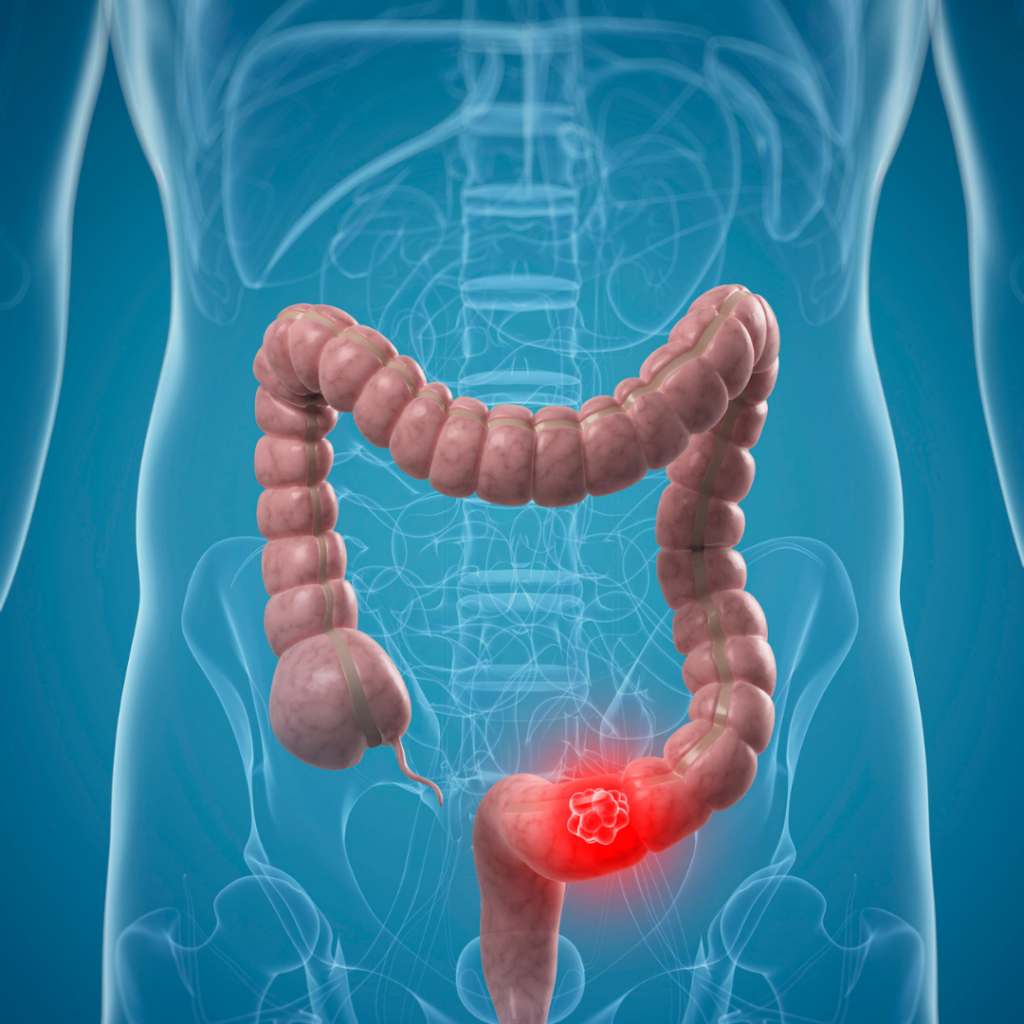
What Is Colon Cancer?
Colon cancer, also known as colorectal cancer, is the second leading cause of cancer-related deaths in the United States. Colon Cancer affects both men and women and occurs when abnormal cells are found within the large intestine or rectum. The large intestine is commonly referred to as the colon. Colon cancer has favorable results when detected and treated early.
Polyps and Colon Cancer
When cell growth and cell repair malfunction in the lining of the colon, polyps form. Polyps are growths inside the intestines. Most polyps are harmless, but there are those that can become cancerous and develop into colorectal cancer if it is not detected and removed early. The most common types of polyps are hyperplastic and adenomas.

4 Risk Factors You Can’t Control
There are two types of risk factors, ones you can control and those you can’t. Four risk factors you can’t control in this situation are age, family history of colon cancer, polyps, and inflammatory bowel disease. These three risk factors can contribute to colon cancer and cannot be changed.
5 Risk Factors You Can Control
The good news is there are five risk factors you can control that decrease your chances of developing colon cancer. Limit your red meat consumption. Red, processed meats and those cooked at high temperatures should be consumed in moderation. Obesity is something else that should be avoided by burning more calories than you consume. It’s a good idea to exercise. You don’t have to endure a rigorous workout at least two or three times per week.
If you are a point in your life where you can stop smoking, do so. Smoking has a negative impact on your overall health. Moderate alcohol consumption does not pose as great a health risk as heavy alcohol consumption. A glass or two of red wine with dinner is good for your health, but an abundance of alcohol can cause a series of health problems.
Symptoms of Colon Cancer
One of the drawbacks of colon cancer and factors that make it a serious condition are there are not any early warning signs. Not having early warning signs means you should get checked regularly to detect potential problems because you will not have symptoms until the condition has progressed. The earlier colon cancer is detected, the easier it is to treat with a favorable outcome. Colon cancer-related symptoms you may experience include fatigue, constipation, bloody stool, unexplained weight loss, and stomach pain. When you experience or notice these issues, there is a chance you already have large tumors. Large tumors are harder to treat than small tumors.

Detecting Colon Cancer
An early diagnosis of colon cancer is the best way to treat this condition with hopeful results. Screening tests are required for an early colon cancer diagnosis. Individuals who are 50 years old or older should have a colonoscopy performed every 10 years. A colonoscopy is a procedure that is performed by your doctor to determine if you have colon cancer by viewing your whole colon and rectum.
The early colon cancer is detected, the better your chances are of having polyps and tumors removed with a high success rate. Early colon cancer detection provides more treatment options. Don’t wait until the last minute to have a screening test performed. Your health is important.


